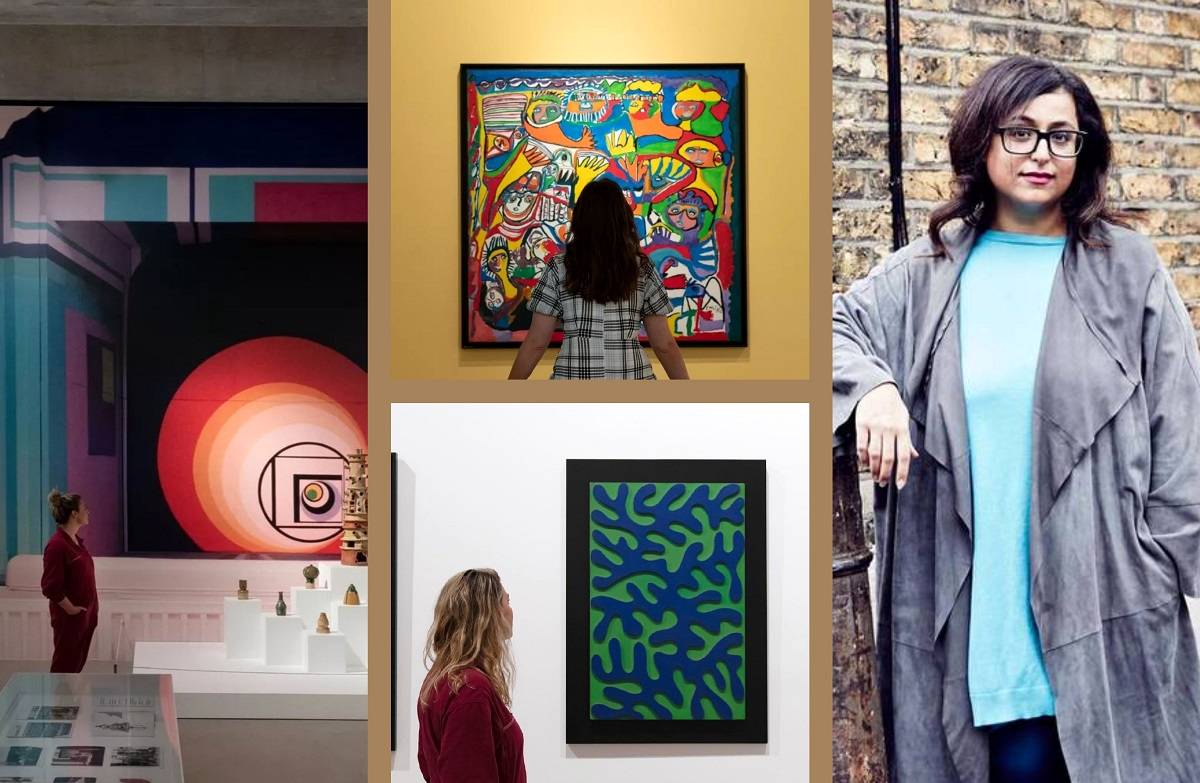
"Casablanca Art School" exhibition is presented in collaboration between Sharjah Art Foundation and Tate St Ives
In February 2024, the exhibition will travel to Sharjah, where it will be presented in collaboration with Sharjah Art Museum and curated by Hoor Al Qasimi, Director, Sharjah Art Foundation.
Artdayme: On now at Tate St Ives, a landmark exhibition of the Casablanca Art School presented in collaboration with Sharjah Art Foundation.
In February 2024, the exhibition will travel to Sharjah, where it will be presented in collaboration with Sharjah Art Museum and curated by Hoor Al Qasimi, Director, Sharjah Art Foundation.
KW Institute for Contemporary Art and Sharjah Art Foundation, in collaboration with Goethe-Institut Marokko, ThinkArt and Zamân Books & Curating have initiated the School of Casablanca, a collaborative project that takes as its starting point the legacy of the Casablanca Art School and its innovative pedagogical methods and exhibition strategies in 1960s Morocco. Launched in 2020, the initiative will continue through 2024.

The School of Casablanca project highlights a pivotal moment in Moroccan art history that had implications for the wider region. After Moroccan independence in 1956, a new civic awareness emerged and impacted artists and intellectuals seeking to reconsider their social function and visibility in the public sphere. Through this process, the artist became the producer of a social and cultural project, in which art was expected to become a space of shared knowledge and experience. The Casablanca Art School was a seminal forum for the development of these ideas and related practices. Drawing on and interpreting the Bauhaus Manifesto, the school engaged models of rethinking the relationship between arts, crafts, design and architecture within a local context.

Recommencing this engagement after the centennial of the Bauhaus, this new collaborative initiative seeks to further the legacy of the Casablanca Art School in contemporary thought, which is important not only within a Moroccan context, but also in relation to critical reflection on the traditions of Western methodology and self-perception.

Through a diverse range of activities, the School of Casablanca revisits and renews the radicality of ideas and actions of the group of individuals who shaped the original school at its peak (1964–1969), and draws upon the spirit of experimentation, discourse, self-organisation and community building embodied by the famous Moroccan cultural magazine of the time, Souffles. Iconic and avant-garde, the cultural review was founded in 1966 by Abdellatif Laâbi, Mostafa Nissabouri and Mohammed Khaîr-Eddine, and collaborated extensively with the Casablanca Art School. Banned by the authorities in 1972, the magazine was an important focal point for Moroccan and international artists, poets, painters, filmmakers, thespians, intellectuals and cultural figures.

The School of Casablanca is curated by Hoor Al Qasimi, Director, Sharjah Art Foundation; Krist Gruijthuijsen, Director, KW Institute for Contemporary Art, Berlin; Salma Lahlou, Independent Curator and Founder, ThinkArt, Casablanca; Inka Gressel, Director, ifa-Galerie, Berlin and Alya Sebti, Director, ifa-Galerie, Berlin (parental leave).

This initiative is in keeping with Sharjah Art Foundation’s longstanding involvement in institutional partnerships, public programming, exhibitions and international projects over the years that support art education, professional development, art practice and the production and sharing of knowledge.

The School of Casablanca includes research residencies, public programmes, a digital archive and a touring exhibition of new works created by the residents as well as an exhibition of historical works by the artists who were originally associated with the Casablanca Art School.


LEAVE A RELPY